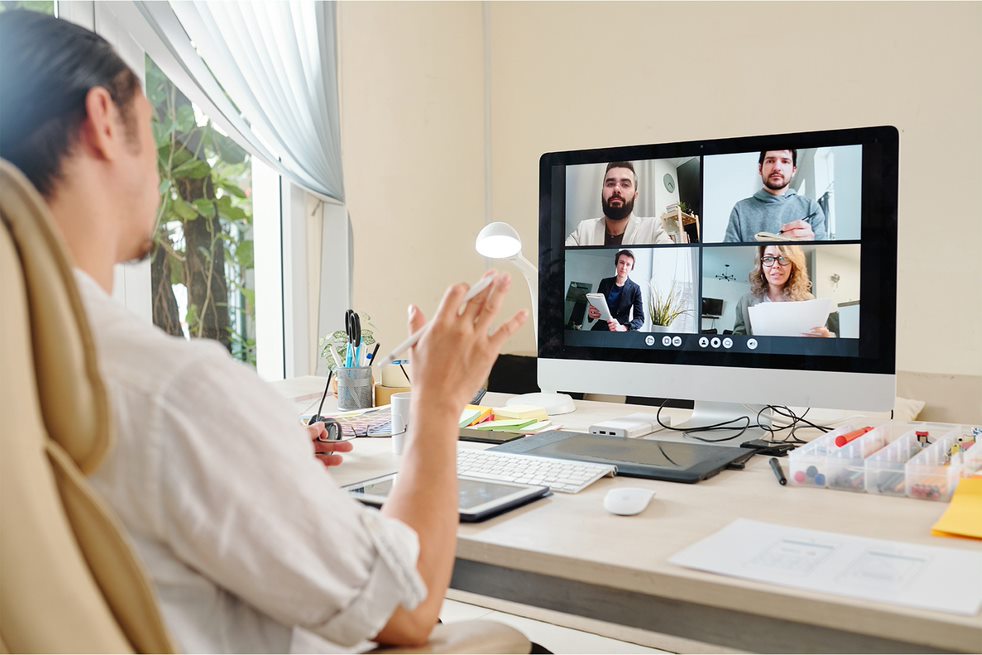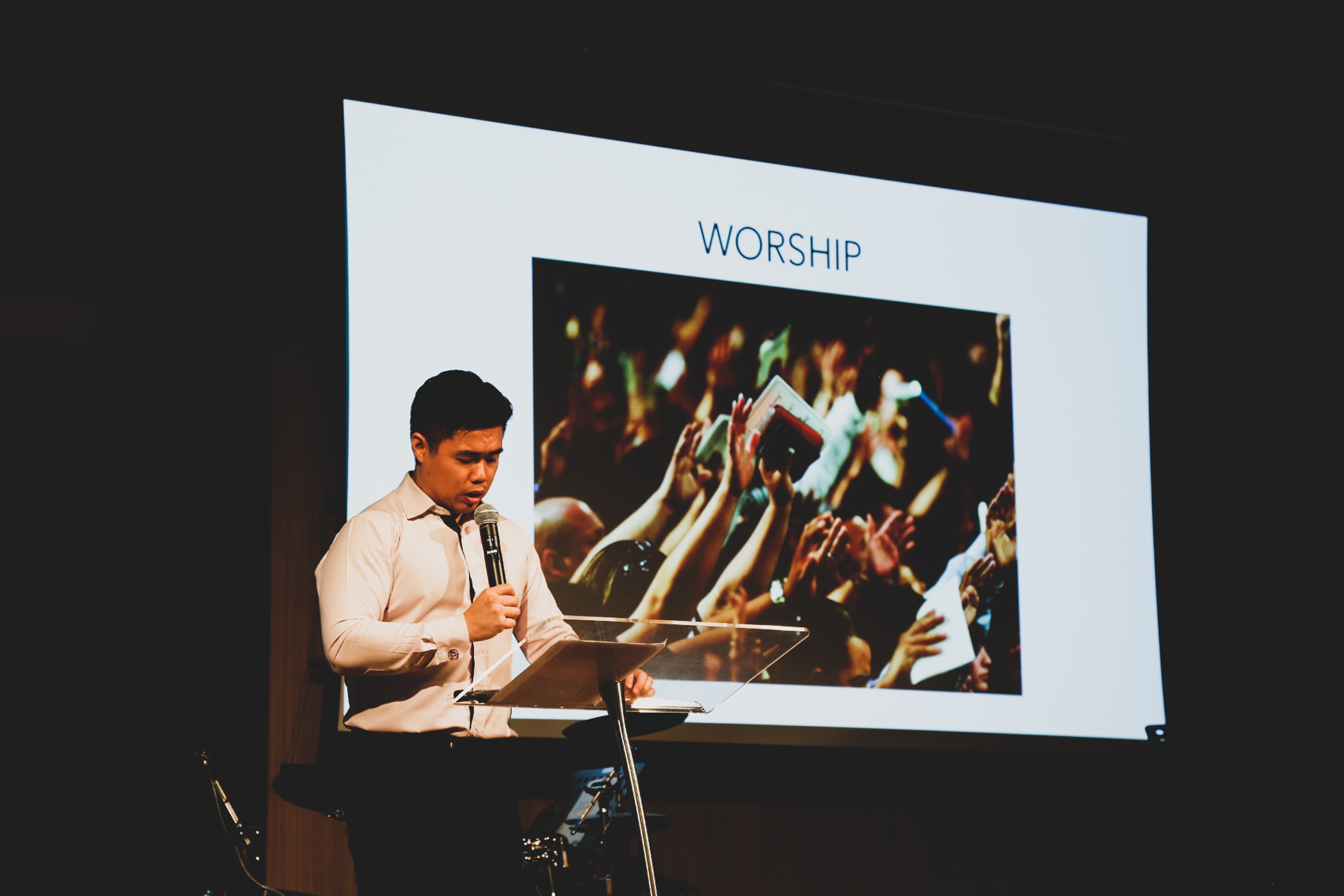
Dec 24, 2020 | Event Industry, Marketing, Tech, Virtual Events
There was a time when it was understood that ‘events’ meant ‘in-person’ events. But not anymore. Marketing has changed a lot from the last year or so. One major development is virtual events have taken center stage in marketers’ priorities.
It is true, we are missing out on experiences such as traveling and meeting people in person. But virtual events have managed to hold their fort and are doing surprisingly very well. According to a poll conducted by the Professional Convention Management Association, 81% of people expect to hold more virtual events in the future. And there is good reason to. Let’s see some major reasons why virtual events are useful and why an increasing number of people are adopting them.
1. Virtual events can be produced for less
Virtual events not only cost less to set up than in-person events, they are also open to more people. All you need is an invite and access to the internet to attend one. With a virtual event, you don’t have to make arrangements for venues, travel, or hospitality. If you plan and execute virtual events properly, they can give you more ROI than in-person events.
2. You can plan and execute a virtual event in less time
Virtual events don’t require you to transport people or physical displays, making them faster to set-up than in-person events. A small virtual event can be set-up and promoted in as less as 3-6 weeks. A large virtual event (with thousands of attendees) could take more than six weeks to set up. Meanwhile, it can take as long as eight weeks to set up an in-person event.
3. Attendees are more likely to attend a virtual event
Earlier, many people couldn’t attend as many events as they wanted to because they were averse to traveling. Many also had busy work schedules, in addition to the family and home responsibilities. All these ate into their event plans, and only people who absolutely couldn’t miss an event made it to in-person events. But the rules have changed now. Online hosting of events has made events accessible to more people. Today, we see more people attending virtual events than ever before.
4. Virtual events connect people from over the world
One of the significant disadvantages of in-person events is that they are limited by geography. For example, you want to attend a Metallica concert in New York City but you stay around 100 miles away, in Hartford, you have to think twice about attending. Virtual events give an excellent opportunity for cross-border networking because they are not limited by geography. If you are a business or event planner with global aspirations, this is a huge plus point. Here’s a post on the rise of the event technology strategist.
5. Virtual events can lead to more effective conversations
Holding a virtual event often costs a fraction of what it takes to have an in-person event. They also attract attendees from diverse locations. This makes it possible to hold virtual events for even niche events. With virtual events, you also have an opportunity to really impress your audience, rather than merely skimming the surface. Moreover, attendees at a niche virtual event are more likely to be interested in your product (or service) than others. Here’s a post on how to effectively market a virtual event.
6. Virtual events give a lot of insights and data
Asking people to fill up forms during and after in-person events is a bit of a hassle. But you need that data to find out what type of people are attending your event and other particulars. A filling of forms precedes many virtual events. Virtual events are also easy to record. This is an invaluable resource for salespersons who want to find prospects for their product (or service) or marketers who wish to find data points to fine-tune their strategies.
6. Virtual events appeal to high-profile speakers
High-in-demand speakers are hard to pin down for an in-person event unless you offer something substantial in return. In fact, you may not be able to get a high-level executive even from your own company to speak at your in-person event, especially if they have to travel a lot. But in virtual events, there is no traveling involved. This feature makes virtual events more attractive to high-in-demand and C-level speakers.
7. Virtual events are much easier to scale than in-person events
In-person events can be scaled only to the extent of the capability of the venue. With virtual events, you have the option of using a videoconferencing app or a dedicated streaming service. As a result, virtual events are much easier (and faster) to scale to accommodate a large number of people at a fraction of the cost. And more people mean better reach and visibility.
8. Virtual events can keep pace with your offerings
If you are about to launch a new offering or make a significant announcement regarding your product, and you want it to be interactive, a virtual event can help. Now, you no longer have to wait to accumulate a large product pipeline and introduce all of them at once at an in-person event. Instead, you can make more frequent announcements via a virtual event.
9. Virtual events help you qualify leads more quickly
It is possible to integrate appointment calendars with virtual events, allowing you to follow-up with prospects, even as your events are running. In short, virtual events enable you to qualify leads more quickly and lead them down the sales funnel faster.
Running a virtual event is both easy and difficult at the same time. You not only have to come up with creative ideas to make your event attractive to your audience; you also have to find the right technology to ensure the event passes off smoothly. Here’s a post on the latest trends in event technology.
How good it would be if you had a platform to curate and engage with at least your speakers! But don’t give up yet because have some good news for you!
Speaker Engage is a fully-integrated, cloud-based platform designed by event organizers for event organizers that helps you curate and delight speakers & sponsors by streamlining the event planning and execution process. Sign up for a demo today!

Dec 24, 2020 | Event Industry, Marketing, Tech, Virtual Events
In the wake of the coronavirus pandemic, many businesses and event planners switched to virtual events rather than cancelling their pre-decided in-person meet. As a result, virtual conferences and events have become the new normal. Businesses may now directly reach thousands of people in different locations at the same time through virtual events.
However, it is not easy to conduct and manage virtual events. It requires thorough planning and an investment of time and effort for its successful promotion and execution. Your event marketing strategy must be on point to provide participants with a terrific experience and ensure the event’s success.
Here are a few tips on how to promote a virtual event in a better way to meet all of your objectives.
A- Create an attractive landing page for the event
A landing page is where the users go to in order to learn everything about your event. Since the first impression has to be the best, the landing page you develop for your event must stand out with vital information presented appealingly. The landing page should give out the complete information regarding the event, with the registration link pushing visitors to join the event. The page should be detailed and attractive to draw the attention of the user. Some of the essential information that has to be added to the landing page are:
- Time
- Date
- Agenda
- Speaker information
- Sponsor information
- Registration link
- Payment option (if any)
B- Make use of existing database for email marketing
Email marketing is still the most effective marketing strategy to drive results. Send out email newsletters with a clear subject line to your target audience. Come up with an engaging email campaign and share valuable information to educate your audience about the event updates. The email should have complete information regarding the event. Make sure to hook your audience with exciting updates and offers, such as discounts and early-bird offers.
C- Leverage your social media channels
Promoting your event on social media platforms is one of the best ways to reach more people. And there are endless ways to do so. Understand your audience and their behavior patterns; this will help you come up with the perfect plan to market your campaigns. Craft distinctive, appealing social media posts to increase engagement and generate leads. Here are some ideas that you can follow:
- Spread the word by creating a hashtag.
- Share eye-catching images and videos optimized for each platform.
- Publicize the event’s unique selling points widely.
- Promote early bird offers and deadlines, driving urgency to boost registrations.
- Increase engagement by creatively introducing the host.
D- Boost promotions through your partners, sponsors, and speakers
Involving your speakers, partners, and sponsors in the promotion efforts of your event will help you gain exponential results. When the speakers promote your event on their social media channels with the relevant content and hashtag, it will help you get their audience to the event. And, when the sponsors and partners promote your online event, it reaches new audiences and has tremendous effects on the turn up. Encourage them to share the event’s details with their contacts and followers so that the word gets out. Sharing the registration links, social media page links, graphics, announcements, etc., is a step in the right direction.
E- Prepare attractive videos for promotion
We all love watching original video content. Videos are a crucial aspect of your event promotion strategy. Several studies explain that with a 2-minute video, you can hit the engagement jackpot. Thus, create a short video (no longer than 2 minutes) showcasing vital information regarding the event and share it on all social media channels and YouTube. Make it funny and engaging, and use your social media hashtag somewhere in the video.
Summary
Virtual events can seem tricky. However, with a proper and sound marketing plan, you can easily promote your event, which will help you drive as many participants as possible. Follow the ideas mentioned above and promote your event successfully.
If you are planning to organize and promote your virtual event, contact us. We will help you ease your task and guide you every step of the way.
YouTube description: Promoting a virtual events sound very tricky. But it doesn’t have to be. Watch this video to learn a few tips and tricks on how to promote your virtual event in the best way possible.

Dec 16, 2020 | Event Industry
Virtual events are becoming part of our daily routines as companies and organizations start adapting to remote work. It is possible that for some brands, this is a temporary shift. Even then, we must admit that hosting events online is significantly more beneficial than an in-person event. For instance, unlike a physical event, a virtual event enables your brand to tap into global audiences.
Online events are not going anywhere. A simple Google search will throw up many competing webinars, Q&As, and live streams for any topic under the sun. With a plethora of online events fighting for attention, it can be quite challenging to get people interested in your event.
So, if you are planning to shift your in-person event to an online event, how do you ensure that it receives the most attention? Here are a few things that you can do.
- Set the right expectations
When you hold an in-person event, you have to be clear about your content to promote it adequately. These rules apply to online events as well. Setting expectations is a necessity to get what you want, the way you want it. Online events differ in their content, and your audience will want to know what they are signing up for before committing their time and money.
You can follow this logic when you send emails to your registrants as well. If you remind them why they were interested in attending the event, they are more likely to turn up for the event. Here are a few tips for boosting your webinar marketing strategy.

-
Encourage your speakers and employees to speak about the event
The more people talk about your event, the better the publicity. Requesting your speakers, employees, and other stakeholders (sponsors, co-branding partners) to talk about your event on their personal platforms, is an excellent way to get some free publicity for your event.
Start by sharing a link to the event with them. If you want to go further, share marketing collateral like posters, videos, and other content as a part of your virtual event’s marketing strategy. The latter’s advantage is, it will make them more likely to share your event with their audience. Here’s a post on how you can increase attendance at your virtual events.
-
Take advantage of co-branding opportunities
Co-branding is a strategic alliance of multiple brands for a single product (or service). It is a great way to enter new markets and boost awareness about what you are offering.
In co-branding, you partner with another brand or sponsor to create an event and inform your audience about the event together. It allows you to piggyback on your co-branding partner’s popularity. But you must ensure it is a partnership where all the parties are benefited.
-
Enter your event in an online event registry
An easy hack to increase your event’s visibility is to enter your event’s details on an online event registry. This is an excellent way to market smaller events or ones where you have a limited marketing budget.
Speaker Engage’s online event directory is a good place to start. It allows you to discover events by date, location, industry, and event type. It is a one-stop shop to find exciting events and webinars and you can also benefit from the co-branding opportunities it offers you. Click here to explore how you can scale up your event using virtual event marketing strategies and ideas.
-
Track the success of your marketing efforts
Management guru Peter Drucker says, ‘if you can’t measure it, you can’t manage it.’ If you are spending time or money arranging a virtual event, you will want to track its performance. This way, you can discover which of your marketing strategies are working and which are not.
There are many ways to track site visits and registrations. To measure site visits, you can use Google Analytics. To discover returns on social media marketing expenditure, you can use their propriety analytics platforms. To find out where the registrations are coming from, you can use UTM links.

-
Create a virtual event that people want to attend
The marketing of virtual events is similar to that of in-person events. But there are some key differences. For one, you can market a virtual event to a broader audience (even a global one). Secondly, the virtual event marketplace is very competitive, and you may have to vie with others to grab eyeballs.
Third, the goal of marketing in-person events is to get people to purchase tickets. For virtual events, the purpose of marketing are many, to get people to register for the event, to remind them to log in at the right time and to get them to follow a call to action after the event.
Finally, don’t forget, the goal of conducting a virtual event is to inform people about a product (or service). The way you pass this message along will largely determine the success of your event. Looking for ways to get more people to turn up at your event? Speaker Engage is your best partner for all online event planning and management tasks, with futuristic tools and online event management software.
Meanwhile, if you want to simplify how you manage and coordinate your events as an event manager, try Speaker Engage. Sign up for a demo today!

Nov 13, 2020 | Event Industry
In the ever-changing world of event management technology, keeping up-to-date with the latest trends is crucial to delivering outstanding value to attendees. Meanwhile, attendees can also benefit from a more straightforward registration process, enhanced technologies such as virtual reality, augmented reality, and live streaming, especially when physical events have taken a backseat due to Covid-19. If you are an event technology strategist or working towards becoming one, you can look at onboarding some of these changes to gain an edge vis-a-vis your competitors.
The catch is, new technologies are always on the horizon, and it can be a challenge to keep track of what is relevant and what is not. Here are some useful trends in event management technology to increase ROI from your events.
- Wearable tech
Near Field Communication (NFC) enabled smart badges and wristbands can help attendees extract more value from events. For example, wearable tech can be used to make cashless payments, gain exclusive access to different parts of an event, receive marketing collateral, and more.
Wearable tech can also control access to events, increase check-in speed, help to monitor attendees’ behavior, and improve security with fewer staff involvement. Note that, in exhibitions, not all the booths get the same footfalls. Event strategists can identify such stalls and take action to increase footfalls.
- Facial recognition
Today, most high-footfall events require attendees to upload their photographs for registration. Here’s how it is done. When attendees are standing in queue to mark their presence at an event, their facial features are scanned using a particular reader. Matches lead to personalized actions, such as printing badges with the guest’s photo on them, transferring digital vouchers (for food), and swag bags to attendees.
Facial recognition can streamline guest touchpoints and generate data to enhance the quality of future events. It allows event planners to automate critical tasks, lower workforce requirements, and other miscellaneous costs.
-
Projection mapping
In projection mapping, videos are projected onto objects to deliver a spatial augmented reality experience. The items can range from buildings and theatrical stages to small indoor objects. When used strategically, projection mapping can create excitement around an event, leading to better engagement.
Projections needn’t be limited to videos – they can be any creative content – maps of the layouts, art displays, social media walls, and more. It can transform spaces without undertaking physical construction or deconstruction, giving event planners more bang for their buck.
- Second screen
During some event segments, such as meetings and presentations, you can expect attendees to use their smartphones. It is called ‘second screen’ technology and can create engagement with attendees while enhancing your learning and understanding of their behavior through insights.
Attendees can use the second screen to follow presentations, take part in text-based Q&A sessions and quizzes, and even take notes. It also enables attendees to view tables, graphs, videos, social media pages, and websites. Second screen technology improves the attendees’ experience, keeping them attentive and engaged with events.
- Indoor wayfinding
You might have used Google Maps for navigation at some time. Similarly, with indoor wayfinding, attendees navigate through the event venues. It works through Bluetooth beacons installed at strategic locations in event venues that transmit signals to mobile apps.
Indoor wayfinding has the potential to replace indoor signage, saving money event planners might otherwise invest in producing, shipping, and placing these signs. Attendees will also appreciate that they no longer have to ask people for directions. Another benefit is the opportunity to incorporate proximity advertising, delivering better event ROI to your sponsors.
- RFID tracking
Radiofrequency identification uses radio waves (through a reader) to identify information stored on a tag that a person wears. Event planners can use RFID technology to identify attendees, streamline entry into venues, and prevent fraud. They can also use RFID to track attendee behavior and build their profiles for sending targeted messages.
The analytics you gain from RFID tracking can be used to improve events by tracking how popular an event was, how much time a guest spent in an exhibitor’s booth, and more. RFID also helps security staff do their job better, helping build trust.
-
Event planning software
Now that you have all the tech in place, the next task is to plan the event itself. And if you are going to have multiple speakers at your event, we know how difficult it can be to coordinate it all.
Speaker curation can become chaotic without proper planning. You have to find the right speakers, sort them into speaking slots, send reminders to confirm attendance, manage social media engagement, track engagement with attendees, maintain relevant files related to the event, and more. An event planning software can help streamline this process. Check out Speaker Engage to manage this aspect of your event.
- Geofencing
Geofencing creates a virtual perimeter for marketing purposes by using location-based technology such as NFC, RFID, or apps. When the guest enters the geofence, it triggers pre-determined actions such as event check-ins, advertising, and push notifications.
Geofencing provides enhanced value to customers by introducing them to new deals, offers, and information they wouldn’t have known otherwise. It also delivers analytics to improve future events and deliver better ROI to sponsors.
The Covid-19 pandemic has necessitated a digital transformation, and event planners are struggling to find novel ways to conduct events. While virtual events have replaced location-based events, the change has come at social capital. The lost social capital can be regained by bringing in technology to recreate in-person experiences, relationships, and opportunities, crucial to making any event a success. Here’s what Chaitra Vedullapalli has to say about the digital transformation underway in the event industry.
Meanwhile, if you need assistance with managing and coordinating events with your speakers, consider giving Speaker Engage a shot. It eases the event planning process while removing the bottlenecks likely to crop up when you design an event with speakers. Sign up for a demo today!

Nov 5, 2020 | Microsoft Teams Live
Heraclitus, the pre-Socratic philosopher, once said, ‘Change is the only constant.’ Marketers will do well to heed this mantra.
Businesses are evolving at an alarming speed. The way we produce and consume data has undergone a sea of change. And technology has a significant role in this transformation and will continue to be in the foreseeable future.
One of the most exciting and fastest-growing marketing verticals is event technology. To put it simply, event technology is any digital tool that helps event planners complete tasks quicker. The tools can be mobile event apps, event planning, management software, or event marketing software. Here’s a link to how to become an event technology strategist.
Event technology can add tremendous value to events
Looking at how technology is advancing, there will soon be a day when it will be impossible to hold an event without using technology. Event management technology has also benefitted immensely from new technologies. Now, marketers are using event managing software and stacks to make events more engaging, less expensive, and deliver better ROI to clients.
The COVID-19 pandemic has pushed many events online. While this development has undoubtedly affected physical events, it has become a shot in the arm for virtual events.
For example, the ‘Event Marketing 2020: Benchmarks and Trends Report ‘says 85% of respondents believe in-person events are crucial for their company’s success. And 20% more marketers in 2020 (from 2019) believe in-person events are the most critical channel for achieving business goals.
Event management and conduction is rapidly changing
Before the time of event technology, hosting an event involved a lot of manual work. Guest lists had to be written down one by one, while promotional material was limited to print and mail. Moreover, it was complicated to determine the effectiveness of the various parts that made up an event.
Today, event marketers have a fantastic array of technical tools and online event management software to help them manage every aspect of an event, right from marketing and ticket sales to collecting guests’ data. It won’t be wrong to say; event planners are staring at an unprecedented change in their job description. Thankfully, when it comes to business events, everything can be boiled down to two main drivers – education and networking. And these are leading the digital transformation.
Take a look at how you can leverage digital transformation to elevate your events!
Key events driving the tech revolution in the event planning space
Artificial intelligence is a significant driver of many aspects of our lives, and it has not spared the event technology space either. For example, Gartner says that by 2020, chatbots will handle 85% of customer interactions. But here lies the opportunity.
60% of event planning professionals didn’t use any event planning software until 2018. It means there is a lot of scope for someone who has just started on their path to becoming an event technologist. Here are a few tools one must know while planning to host their first online event.
The industry is also moving away from gut instinct to data crunching to arrive at decisions. Now, event planners-turned-strategists are being asked to provide KPIs (Key Performance Indicators) and other metrics to show how impactful their event is and to provide tangible results.
Significant events are a soft target for data thieves, compromising the safety of guests. Event strategists must be aware of such loopholes to prevent them.

Technology has opened an ocean of opportunities for event planners
The COVID-19 pandemic has moved events to the digital space, where technology is paramount. Communication has also become fast, flexible, and personalized, affecting consumer behavior and expectations.
Events are also facing an existential threat from highly accountable, alternate customer engagement mediums like digital marketing. Event strategists must show why businesses will continue to need events while also mastering digital marketing to create new revenue streams. Here is a checklist to help you keep track of things while organizing a virtual event.
A major challenge with virtual events is protecting the privacy of guests. Guests must have access to their data at all times, with the right to remove it, correct it, and restrict its use. And there will soon be new regulations on data profiling, i.e., using data to predict user characteristics.
Events are also more interactive today (an opportunity to maximize the event’s potential). A business event is a chance to convert the guest into your client.

Event management technology strategists can bring manifold benefits
As events evolve in context, content, and complexity, the stakes increase, so engaging a professional event technologist is the logical solution.
Event management technologists can reduce workloads through automation, bringing down operational costs. They also bring access to exclusive insights and data analytics that can improve event ROI and guest experience.
There is also a considerable gap between businesses and effective utilisation of IT infrastructure, leading to missed opportunities in growing market share, revenue, customer satisfaction, and market speed. An event technologist can bridge this gap. They can also enhance logistics, administrative, and communication efforts.
Finally, event technology strategists, with their specialized knowledge, will also know the best way to protect guests from physical and digital threats.
If you want to become an event technology strategist or if you want to upgrade your skill, we have the resources to assist you. Head over to Speaker Engage for a free demo and win yourself 30-days of Free Trial!











